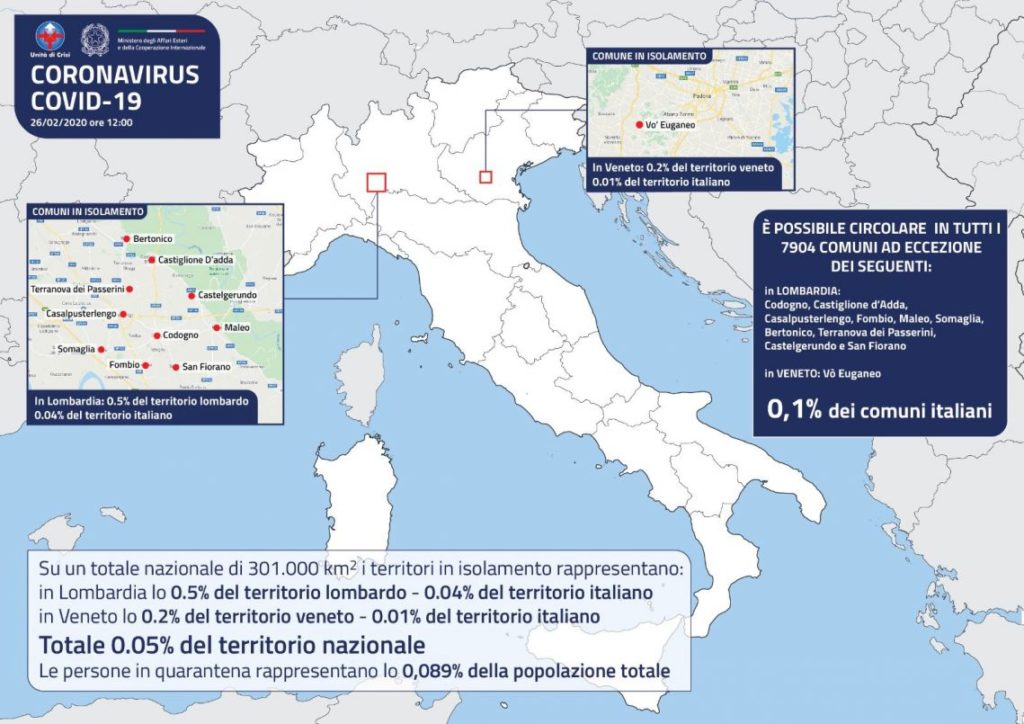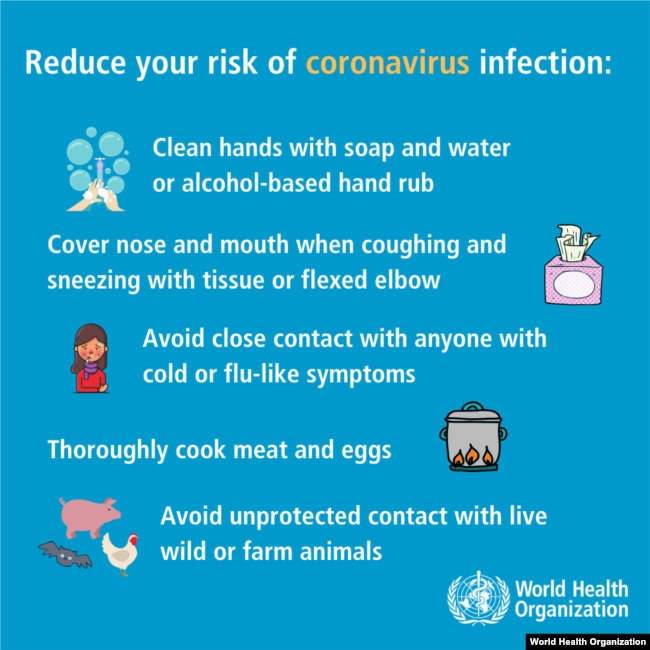This is the situation to date.
The coronavirus headlines and spread of misinformation have turned Italy into a grip on a coronavirus emergency. People planning a trip to the country are understandably concerned – but there’s no need to panic.
Here’s what you need to know to decide.

There has been alarmism via news and social media that has
caused an exaggerated amount of panic-driven reactions (both domestic and
international) that are more harmful than helpful – and which are impacting
tourism and daily life in Italy more than the virus itself.
But what is really happening? These are the facts:
1. Not all of the country is affected by the illness
There are currently only 11 towns in the north of the country where these draconian measures are in place. Ten of the towns are in a small area south-east of Milan in the region of Lombardy, while one is in the north-eastern region of Veneto.
The two major cities of each region, Milan and Venice, have implemented closures and restrictions of churches, schools, stadiums, etc. to prevent crowds from gathering – strictly as a precaution. These measures are in place for the short term – since neither city has registered cluster cases.
In ten regions across Italy, authorities say there is no reason to fear visiting the country.
The situation in Umbria:
At the moment, the situation here in Umbria is perfectly normal: there are no cases of Coronavirus, there are no restrictions or closings, and we are all going about our lives as usual.

2. Italy has been doing the most screening of any country.
There has been alarmism via news and social media – which has been stoking fear and speculation – but the medical experts are stressing that this is uncalled for.
The reality of the matter is that since the outbreak in China, Italy has been doing the most screening of any country – they have tested about 10,000 people, of whom only about 400 have resulted positive (and 90% of them are from the 2 quarantined towns).
It has been recognized, even by the authorities of other nations, that this extensive screening (which included people who were without symptoms but had been exposed to an infected person, or had traveled to China) is one of the reasons the positive stats in Italy are so high. In other countries, they most probably have more cases than they have identified – consider that in the US only 445 people have been tested.
3. Number of cases and levels of disease
According to the experts this virus itself in most cases is not particularly aggressive. The majority of those infected present mild to moderate flu symptoms and recover spontaneously. The risk of respiratory complications is higher in older persons and persons with pre-existing medical conditions (but this is also true with all infections).
- Of the approximately 400 who tested positive in Italy, only 15% are hospitalized – the rest are at home with mild symptoms.
- 40 infected are completely recovered. Among them are also the two Chinese citizens and the Italian man who arrived in Roma from Wuhan with the coronavirus and who were hospitalized at the Spallanzani Hospital.
- Most cases are asymptomatic. Yesterday a woman has given birth to a child negative for the virus.
- All 12 of those who havedied were either elderly and had pre-existing medical conditions. The medical experts say they did not die “because of” the coronavirus but “with” the coronavirus.
4. What health experts recommend:
Experts say that it remains safe to travel to Italy (and to live here, for that matter) – so long as you take the same precautions you would against the flu and follow the local authorities’ instructions.
They include:
• Avoiding any areas that Italian authorities have blocked off;
• Washing hands often;
• Keeping unwashed hands away from eyes, nose or mouth;
• Avoiding contact with unwell people.

5. Questions about traveling to Italy and coronavirus.
You can find the latest information about the coronavirus in Italy from the Italian Health Ministry, your country’s embassy, or the WHO.
On our part, we will continue to closely monitor the situation, and be straightforward about what is happening. Hopefully in the short term it will become clear to everyone that there is no reason to avoid traveling to and within Italy.
If you have questions about traveling to Italy and coronavirus, email us at info@letorridibagnara.it (or reply to this email) with “Coronavirus” in the subject line and we’ll be pleased to answer as many as we can in an upcoming newsletter.

